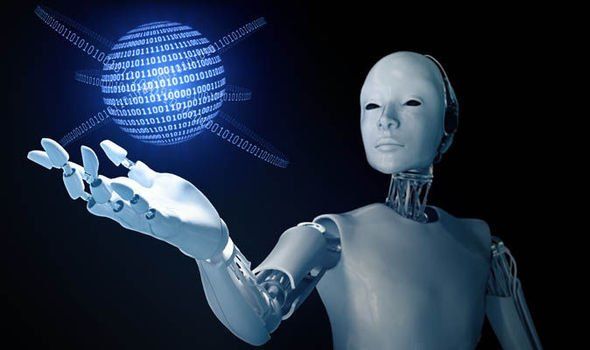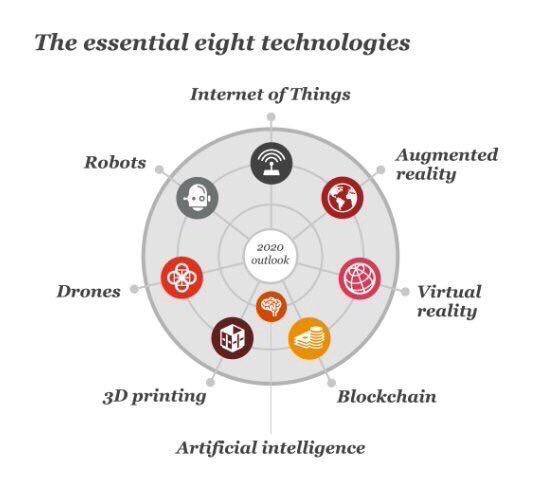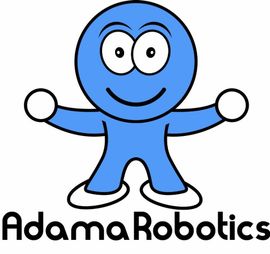
We only have 45 years to feel superior to robots, as there is a 50% chance that machines will outperform humans by then.
According to AI experts surveyed by Oxford and Yale University, “All human jobs will be automated within the next 120 years”
A survey run by the Future of Humanity Institute , a research center that studies existential risks at the University of Oxford in the UK and Yale University in the US, asked 352 machine learning researchers to predict how AI will progress.
The question asked was, “When will AI exceed human performance?”
Artificial intelligence is predicted to be better than us translating languages by 2024, writing high school essays by 2026, driving a truck by 2027, working in retail by 2031, writing a bestselling book by 2049 and surgery by 2053.
These figures are considered conservative by Elon Musk, owner of tech firms Telsa and SpaceX, who tweeted that he believes AI will triumph in the mid-2030s.
‘But it will be a long time before we see an AI with human-like versatility’, says Prof Eleni Vasilaki at Sheffield university.
Georgios Yannakakis, associate professor at Malta university, said: ‘The survey focused on the cognitive aspects. Parts of intelligence, go beyond cognition. It would be interesting to ask when AI will surpass humans at being art or movie critics.’

The Essential 8 Technologies
1. Robots – It’s more than R2-D2
2. Artificial Intelligence – It’s not fake it’s real
3. Virtual Reality – Seeing is believing
4. Augmented Reality – It’s not what you think it is
5. Blockchain – It’s not when your toilet won’t flush
6. Internet of Things – Connecting things, but what?
7. Drones – They’re not the walking dead
8. 3D Printing – It is what you think it is, but why is it revolutionary?
Robots – It’s more than R2-D2
#1 Technology Robots
How will they improve our lives in the future?
While robot technology is advancing rapidly, the robots of the movies like I Robot or RoboCop are not yet a reality, but they are already more advanced than R2-D2 of Starwars.
In the near future , robots will take the next step into our lives in a more personal way.
Robots won't just change our lives in the future, they'll expand them. Not just for fun, but for necessity.
1) They will help take care of our elderly
One of the most important uses for personal robots in the coming years will be in elderly care facilities.
The United Nations estimates the global over-65 population will more than double by 2037, while the younger population will only rise by 16.67%. The world is on the cusp of a staggering rise in the number of old people, and they will live longer than ever before. Over the next 20 years the global population of those aged 65 or more will double, from 600 million to 1.1 billion.
Personal robots will be counted on to make everyday tasks easier for the elderly, like bathing, helping to lift heavy objects and keep their minds sharp with trivia games.
2) They will be social
Instead of just doing menial chores for us, personal robots will recognise facial expressions, body language and verbal cues to provide a more human-like interaction. These robots will read these clues and be able to hold personal, life-like conversations like Pepper does here ( https://www.youtube.com/watch?v=recognise ), pushing robots far beyond the realm of just a personal helper.
3) They will team up to help you
Robots won’t have to be human-like in the future to greatly affect our personal life. In fact, the way they interact with each other could greatly improve quality of life.
With swarm robot technology, robots will be able to communicate with each other to make things like driving safer or even be injected into our bodies to fight diseases.
4) You will customise your robot
Psychological
research shows humans are desperate to recognise anything that remotely
resembles a human, so robots of the future will allow us to choose their
gender, age, voice and much more in order to make the experience more personal.
5) They Will Effortlessly Fit Into Our Families
We don’t have to wait for personal robots like Jibo, as they are on the market now.
Jibo is programmed specifically for home life. It's designed to learn, remember and interact socially with each member of the family and recognise and react to their social cues. It will snap pictures of the family when you want it to, and even tell the children bedtime stories!
In a world where artificial intelligence and robots threaten jobs...
In a world where artificial intelligence and robots threaten jobs, the skills that children need to learn today are radically different to the three Rs that have for so long been the mainstay of education.
We need to train children for jobs that don’t exist yet.
Boosting educational opportunity helps to ensure children don’t lose out in an increasingly automated and globalised world.
Robots will 'take over a third of all British jobs in the next 15 years' according to - UK Economic Outlook March 2017: PwC UK
If it is being predicted in the news that 30% of existing UK jobs will face automation within the next 15 years, then children aged 7 to 11 years old need to learn to code robots and Artificial Intelligence AI now, as in 15 years time they will be 22 to 26 years old and will be in the job market.
Children need early exposure to building and coding robots, as our future is in robotics and Artificial Intelligence AI. Therefore, children learning these skills is essential to help them to get into employment and to secure a workforce of the future.
That is why Adama Robotics teaches children aged from 7 to 11 years old how to build and code robots via their educational robotics kits.
As our world is more technology orientated than ever before, it is imperative that children understand how this technology works.
“Adama Robotics is helping to bridge the gap by offering comprehensive easy to use educational robotics kits. Helping to fuel children’s interests and providing them with an accessible platform to get started.” says Alexander McKeown (Computer Science Student at QMUL. CEO & Founder of Duothirst)
“Adama Robotics takes what some would see as a complex idea in creating and controlling robots and makes it simple. Their easy to follow kits and guides make the science easy and enjoyable to learn, whether you’ve had an interest in robotics for some time or developed an interest yesterday.” says Computer Science Teacher Samuel David Akinrinwa
CEO and Founder of Adama Robotics, Dauda Barry is passionate about teaching children to understand the mechanics behind robotics and AI. He founded Adama Robotics to demystify robotics, and their educational robotics kits (Skippy, Sunny, Newton & Zippy), “[helps make] science easy and enjoyable to learn, and the robots themselves fun and accessible to everybody.” so says Adama Robotics fan, Joshua Getega of Harvard University.
As robotics and artificial intelligence are increasingly becoming an important part of our lives, it’s clear that now is the time to ensure that generations of the future know how to handle them.

We only have 45 years to feel superior to robots, as there is a 50% chance that machines will outperform humans by then.
According to AI experts surveyed by Oxford and Yale University, “All human jobs will be automated within the next 120 years”
A survey run by the Future of Humanity Institute , a research center that studies existential risks at the University of Oxford in the UK and Yale University in the US, asked 352 machine learning researchers to predict how AI will progress.
The question asked was, “When will AI exceed human performance?”
Artificial intelligence is predicted to be better than us translating languages by 2024, writing high school essays by 2026, driving a truck by 2027, working in retail by 2031, writing a bestselling book by 2049 and surgery by 2053.
These figures are considered conservative by Elon Musk, owner of tech firms Telsa and SpaceX, who tweeted that he believes AI will triumph in the mid-2030s.
‘But it will be a long time before we see an AI with human-like versatility’, says Prof Eleni Vasilaki at Sheffield university.
Georgios Yannakakis, associate professor at Malta university, said: ‘The survey focused on the cognitive aspects. Parts of intelligence, go beyond cognition. It would be interesting to ask when AI will surpass humans at being art or movie critics.’

The Essential 8 Technologies
1. Robots – It’s more than R2-D2
2. Artificial Intelligence – It’s not fake it’s real
3. Virtual Reality – Seeing is believing
4. Augmented Reality – It’s not what you think it is
5. Blockchain – It’s not when your toilet won’t flush
6. Internet of Things – Connecting things, but what?
7. Drones – They’re not the walking dead
8. 3D Printing – It is what you think it is, but why is it revolutionary?
Robots – It’s more than R2-D2
#1 Technology Robots
How will they improve our lives in the future?
While robot technology is advancing rapidly, the robots of the movies like I Robot or RoboCop are not yet a reality, but they are already more advanced than R2-D2 of Starwars.
In the near future , robots will take the next step into our lives in a more personal way.
Robots won't just change our lives in the future, they'll expand them. Not just for fun, but for necessity.
1) They will help take care of our elderly
One of the most important uses for personal robots in the coming years will be in elderly care facilities.
The United Nations estimates the global over-65 population will more than double by 2037, while the younger population will only rise by 16.67%. The world is on the cusp of a staggering rise in the number of old people, and they will live longer than ever before. Over the next 20 years the global population of those aged 65 or more will double, from 600 million to 1.1 billion.
Personal robots will be counted on to make everyday tasks easier for the elderly, like bathing, helping to lift heavy objects and keep their minds sharp with trivia games.
2) They will be social
Instead of just doing menial chores for us, personal robots will recognise facial expressions, body language and verbal cues to provide a more human-like interaction. These robots will read these clues and be able to hold personal, life-like conversations like Pepper does here ( https://www.youtube.com/watch?v=recognise ), pushing robots far beyond the realm of just a personal helper.
3) They will team up to help you
Robots won’t have to be human-like in the future to greatly affect our personal life. In fact, the way they interact with each other could greatly improve quality of life.
With swarm robot technology, robots will be able to communicate with each other to make things like driving safer or even be injected into our bodies to fight diseases.
4) You will customise your robot
Psychological
research shows humans are desperate to recognise anything that remotely
resembles a human, so robots of the future will allow us to choose their
gender, age, voice and much more in order to make the experience more personal.
5) They Will Effortlessly Fit Into Our Families
We don’t have to wait for personal robots like Jibo, as they are on the market now.
Jibo is programmed specifically for home life. It's designed to learn, remember and interact socially with each member of the family and recognise and react to their social cues. It will snap pictures of the family when you want it to, and even tell the children bedtime stories!
In a world where artificial intelligence and robots threaten jobs...
In a world where artificial intelligence and robots threaten jobs, the skills that children need to learn today are radically different to the three Rs that have for so long been the mainstay of education.
We need to train children for jobs that don’t exist yet.
Boosting educational opportunity helps to ensure children don’t lose out in an increasingly automated and globalised world.
Robots will 'take over a third of all British jobs in the next 15 years' according to - UK Economic Outlook March 2017: PwC UK
If it is being predicted in the news that 30% of existing UK jobs will face automation within the next 15 years, then children aged 7 to 11 years old need to learn to code robots and Artificial Intelligence AI now, as in 15 years time they will be 22 to 26 years old and will be in the job market.
Children need early exposure to building and coding robots, as our future is in robotics and Artificial Intelligence AI. Therefore, children learning these skills is essential to help them to get into employment and to secure a workforce of the future.
That is why Adama Robotics teaches children aged from 7 to 11 years old how to build and code robots via their educational robotics kits.
As our world is more technology orientated than ever before, it is imperative that children understand how this technology works.
“Adama Robotics is helping to bridge the gap by offering comprehensive easy to use educational robotics kits. Helping to fuel children’s interests and providing them with an accessible platform to get started.” says Alexander McKeown (Computer Science Student at QMUL. CEO & Founder of Duothirst)
“Adama Robotics takes what some would see as a complex idea in creating and controlling robots and makes it simple. Their easy to follow kits and guides make the science easy and enjoyable to learn, whether you’ve had an interest in robotics for some time or developed an interest yesterday.” says Computer Science Teacher Samuel David Akinrinwa
CEO and Founder of Adama Robotics, Dauda Barry is passionate about teaching children to understand the mechanics behind robotics and AI. He founded Adama Robotics to demystify robotics, and their educational robotics kits (Skippy, Sunny, Newton & Zippy), “[helps make] science easy and enjoyable to learn, and the robots themselves fun and accessible to everybody.” so says Adama Robotics fan, Joshua Getega of Harvard University.
As robotics and artificial intelligence are increasingly becoming an important part of our lives, it’s clear that now is the time to ensure that generations of the future know how to handle them.
